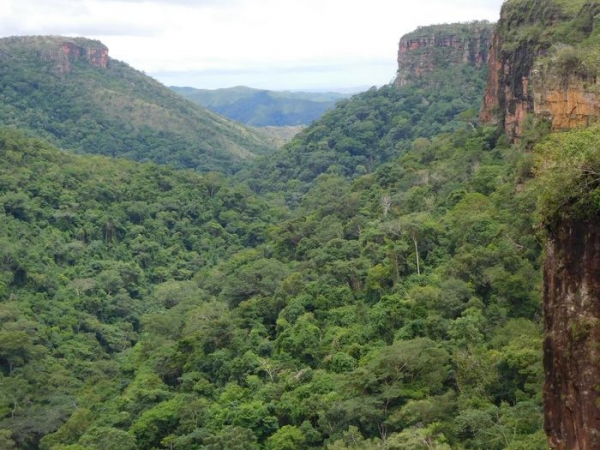Tropical forests in South America lose their ability to absorb carbon from the atmosphere when conditions become exceptionally hot and dry, according to new research.
For a long time, tropical forests have acted as a carbon sink, taking more carbon out of the air than they release into it, a process that has moderated the impact of climate change.
But research led by Dr Amy Bennett, a Research Fellow at the University of Leeds, found that in 2015 – 2016, when an El Niño climate event resulted in drought and the hottest temperatures ever recorded, South American forests were unable to function as a carbon sink.
El Niño occurs when sea-surface temperatures in the Pacific Ocean increase sharply, triggering a major shift in the world’s climate system. In 2015-2016, the result was exceptionally hot weather for South America. A similar event is underway now.
Read more at: University of Leeds
The valley forest at Chapada de Guimaraes, Brasil, is on the periphery of the Amazon forest and is especially vulnerable to drought. (Photo Credit: rainfor.org)


